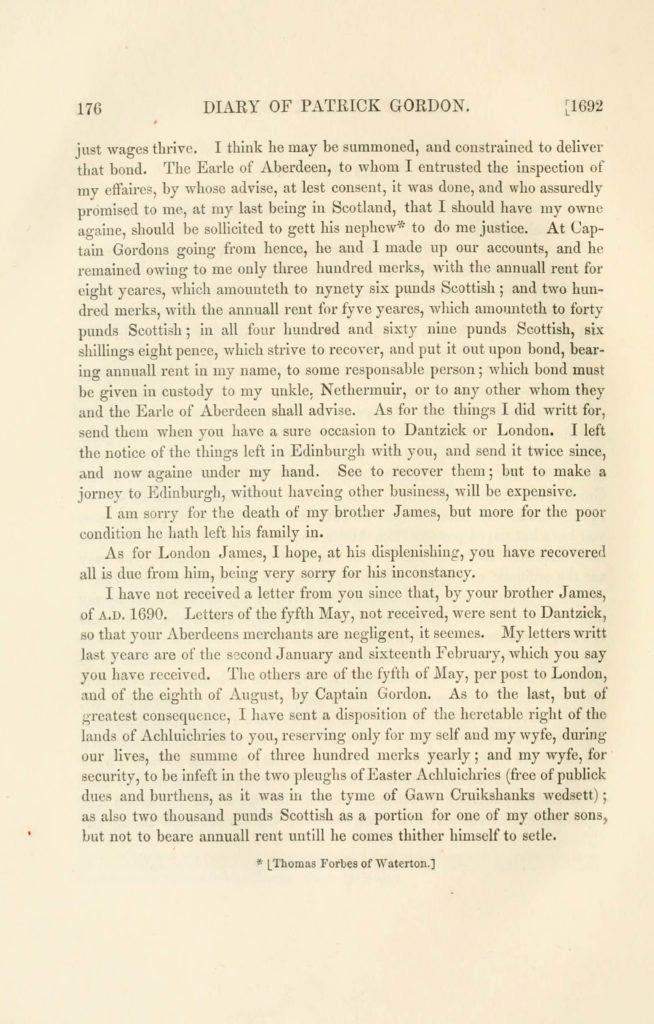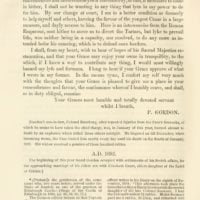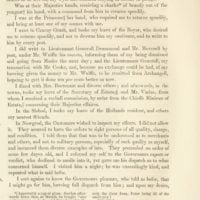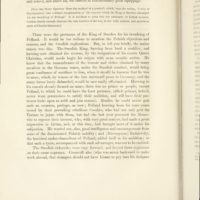
Related

174 DIARY OF PATRICK GORDON. [1692 be restored. As for Harie Gordon
![1696] DIARY OF PATRICK GORDON. 185 for a just cause is rewarded](https://cdn2.picryl.com/thumbnail/1699/12/31/1696-diary-of-patrick-gordon-185-for-a-just-cause-is-rewarded-d5c23a-200.jpeg)
1696] DIARY OF PATRICK GORDON. 185 for a just cause is rewarded

110 DIARY OF PATRICK GORDON. [1686 I gave up my petition

82 DIARY OF PATRICK GORDON. [1666 thought fitt to conforme myself...
![1667] DIARY OF PATRICK GORDON. 89 all the Russia merchants...](https://cdn2.picryl.com/thumbnail/1699/12/31/1667-diary-of-patrick-gordon-89-all-the-russia-merchants-33f5db-200.jpeg)
1667] DIARY OF PATRICK GORDON. 89 all the Russia merchants...
![1692] DIARY OF PATRICK GORDON. 179 Patrick Gordon of Cults](https://cdn2.picryl.com/thumbnail/1699/12/31/1692-diary-of-patrick-gordon-179-patrick-gordon-of-cults-aedde7-200.jpeg)
1692] DIARY OF PATRICK GORDON. 179 Patrick Gordon of Cults

18 DIARY OF PATRICK GORDON. [1655 to me Gordon. He told me he was a ruitmaster, a very pretty discreet man

180 DIARY OF PATRICK GORDON. [1692 countrey. I entreat you to gett Watertowne

20 DIARY OF PATRICK GORDON. [1655 men with a gallant traine of artillery. It was a most delighttull
176 DIARY OF PATRICK GORDON. [1692 just wages thrive. I think he may be summoned...
Summary
Passages from the diary of General Patrick Gordon of Auchleuchries : A.D. 1635-A.D. 1699"
176 DIARY OF PATRICK GORDON. [1692
just wages thrive. I think he may be summoned, and constrained to deliver
that bond. The Earle of Aberdeen, to whom I entrusted the inspection of
my effaires, by whose advise, at lest consent, it was done, and who assuredly
promised to me, at my last being in Scotland, that I should have my owne
againe, should be sollicited to gett his nephew* to do me justice. At Cap-
tain Gordons going from hence, he and 1 made up our accounts, and he
remained owing to me only three hundred merks, with the annuall rent for
eight yeares, which amouuteth to nynety six punds Scottish ; and two hun-
dred merks, with the annuall rent for fyve yeares, wliich amounteth to forty
punds Scottish ; in all four hundred and sixty nine punds Scottish, six
shillings eight pence, which strive to recover, and put it out upon bond, bear-
inc annuall rent in my name, to some responsable person ; which bond must
be given in custody to my unkle. Nethermuir, or to any other whom they
and the Earle of Aberdeen shall advise. As for the things I did writt for,
send them when you have a sure occasion to Dantzick or London. I left
the notice of the things left in Edinburgh with you, and send it twice since,
and now againe under my hand. See to recover them ; but to make a
jorney to Edinburgh, without haveing other business, will be expensive.
I am sorry for the death of my brother James, but more for the poor
condition he hath left his family in.
As for London James, I hope, at his displenishiug, you have recovered
all is due from him, being very sorry for his inconstancy.
I have not received a letter from you since that, by your brother James,
of A.D. 1690. Letters of the fyfth May, not received, were sent to Dantzick,
so that your Aberdeens merchants are negligent, it seemes. My letters writt
last yeare are of the second January and sixteenth February, which you say
you have received. The others are of the fyfth of May, per post to London,
and of the eighth of August, by Captain Gordon. As to the last, but of
greatest consequence, I have sent a disposition of the heretablc right of the
lands of Achluichries to you, reserving only for my self and my wyfe, during
our lives, the summe of three hundred merks yearly ; and my wyfe, for
security, to be infeft in the two pleughs of Easter Achluichries (free of publick
dues and burthens, as it was in tlic tymc of Gawn Cruikshanks wedsett) ;
as also two thousand punds Scottish as a portion for one of my other sons,
but not to beare annuall rent untill he comes thither himself to setle.
* [Thomas Forbes of Waterton.]
Gordon was brought up and remained a lifelong Roman Catholic, at a time when the Church was being persecuted in Scotland. At age of fifteen, he entered the Jesuit college at Braunsberg, East Prussia, then part of Poland. In 1661, after many years experiences as a soldier of fortune, he joined the Russian army under Tsar Aleksei I, and in 1665 was sent on a special mission to England. After his return, he distinguished himself in several wars against the Turks and Tatars in southern Russia. In recognition of his service he was promoted to major-general in 1678, was appointed to the high command at Kiev in 1679, and in 1683 was made lieutenant-general. In 1687 and 1689 he took part in expeditions against the Tatars in the Crimea, being made a full general. Later in 1689, a revolution broke out in Moscow, and with the troops under his command, Gordon virtually decided events in favor of Peter the Great against the Regent, Tsarevna Sophia Alekseyevna. Consequently, he was for the remainder of his life in high favor with the Tsar, who confided to him the command of his capital during his absence from Russia. In 1696, Gordon's design of a "moveable rampart" played a key role in helping the Russians take Azov. One of Gordon's convinced the Tsars to establish the first Roman Catholic church and school in Muscovy, of which he remained the main benefactor and headed the Catholic community in Russia until his death. For his services his second son James, brigadier of the Russian army, was created Count of the Holy Roman Empire in 1701. At the end of his life the Tsar, who had visited Gordon frequently during his illness, was with him when he died, and with his own hands closed his eyes. General Gordon left behind him a uniquely detailed diary of his life and times, written in English. This is preserved in manuscript in the Russian State Military Archive in Moscow. Passages from the Diary of General Patrick Gordon of Auchleuchries (1635–1699) was printed, under the editorship of Joseph Robertson, for the Spalding Club, at Aberdeen, Scotland, 1859.
